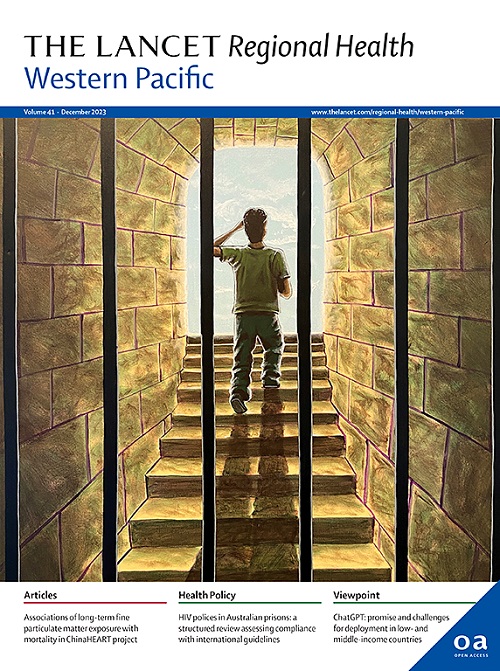The impact of genetics and the environment on cancer risk in Indigenous Australians: a narrative review
IF 8.1
1区 医学
Q1 HEALTH CARE SCIENCES & SERVICES
引用次数: 0
Abstract
Aboriginal and Torres Strait Islander (hereafter respectfully named Indigenous) Australians are diagnosed with some cancers substantially more frequently than non-Indigenous Australians implying a different risk factor landscape. Additionally, poorer outcomes for certain cancers are exacerbated by lower cancer screening rates and later diagnoses compared to non-Indigenous Australians. An improved understanding of cancer causation would allow better shaping and targeting of screening programs for those at the highest risk. A narrative review of relevant environmental and genetic risk factors for various cancers in Indigenous populations was undertaken. Research databases were interrogated in June 2024, with information extracted. Further peer-reviewed and grey literature was identified by specific searchers and citation snowballing. The results show that many distinct risk factors exist in environmental, sociocultural, educational, behavioural and metabolic domains; these complex and frequently interacting risks include direct and indirect social and cultural factors. Identified gaps include limited published literature on the genetic determinants of cancer, decreased levels of effective cancer surveillance for Indigenous Australians, a paucity of culturally appropriate cancer health education programs for both Indigenous community members and health providers, and the historical absence of an Indigenous Australian focus and contribution to research on cancer causation. Indigenous Australian co-designed research is needed to address the gaps contributing to cancer prevention and screening development. Empowerment of national Indigenous Australian leadership in partnership with researchers and service providers is needed to develop tailored health interventions and reduce the existing and future challenges of the cancer burden on Indigenous communities.
遗传和环境对澳大利亚土著癌症风险的影响:一篇叙述性综述
澳大利亚土著居民和托雷斯海峡岛民(以下尊称土著居民)被诊断患有某些癌症的频率大大高于非土著澳大利亚人,这意味着不同的风险因素。此外,与非土著澳大利亚人相比,较低的癌症筛查率和较晚的诊断加剧了某些癌症的不良结果。提高对癌症起因的了解,将有助于更好地制定和针对高危人群的筛查计划。对土著居民中各种癌症的有关环境和遗传风险因素进行了叙述性审查。研究数据库于2024年6月被询问,并提取了信息。进一步的同行评议和灰色文献是由特定的搜索者和引用滚雪球确定的。结果表明,在环境、社会文化、教育、行为和代谢等方面存在许多不同的危险因素;这些复杂且经常相互作用的风险包括直接和间接的社会和文化因素。已确定的差距包括:关于癌症遗传决定因素的出版文献有限,对澳大利亚土著居民的有效癌症监测水平下降,土著社区成员和卫生服务提供者缺乏文化上适当的癌症健康教育方案,以及澳大利亚土著历来缺乏对癌症因果关系研究的关注和贡献。需要澳大利亚土著共同设计的研究来解决有助于癌症预防和筛查发展的差距。需要与研究人员和服务提供者合作,增强澳大利亚土著民族领导人的权能,以制定有针对性的保健干预措施,减少土著社区癌症负担的现有和未来挑战。
本文章由计算机程序翻译,如有差异,请以英文原文为准。
求助全文
约1分钟内获得全文
求助全文
来源期刊

The Lancet Regional Health: Western Pacific
Medicine-Pediatrics, Perinatology and Child Health
CiteScore
8.80
自引率
2.80%
发文量
305
审稿时长
11 weeks
期刊介绍:
The Lancet Regional Health – Western Pacific, a gold open access journal, is an integral part of The Lancet's global initiative advocating for healthcare quality and access worldwide. It aims to advance clinical practice and health policy in the Western Pacific region, contributing to enhanced health outcomes. The journal publishes high-quality original research shedding light on clinical practice and health policy in the region. It also includes reviews, commentaries, and opinion pieces covering diverse regional health topics, such as infectious diseases, non-communicable diseases, child and adolescent health, maternal and reproductive health, aging health, mental health, the health workforce and systems, and health policy.
 求助内容:
求助内容: 应助结果提醒方式:
应助结果提醒方式:


